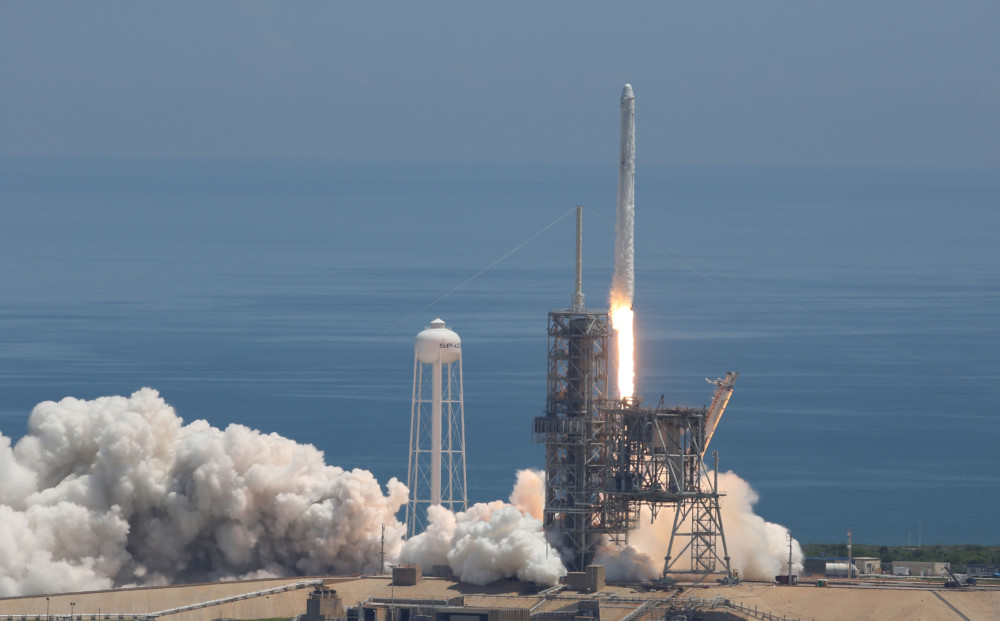By Marco Santana
Orlando Sentinel
WWR Article Summary (tl;dr) As the frequency of launches picks up on the Space Coast, more opportunities have emerged for contractors who do support work. Multiple rockets launch from the Space Coast every month, carrying everything from science experiments to military satellites.
ORLANDO, Fla.
Contractors on Florida’s Space Coast who experienced the post-shuttle era downturn are cautiously optimistic that more business soon will be headed their way.
But the uptick hasn’t happened yet, said Carol Craig, CEO of Craig Technologies.
“You just try to tread water and not make too many big, risky moves until you see where it’s going to go,” said Craig, whose company works in areas that include software development, engineering services and logistics work for defense and aerospace.
SpaceX and United Launch Alliance have already situated significant operations at Cape Canaveral, potentially opening the door for contractors.
In addition, the region’s space industry has been anticipating the arrival of Blue Origin, a rocket launch and development company owned by Amazon founder Jeff Bezos, and OneWeb, a satellite manufacturer.
“We know they are hiring more people and that some good stuff is happening,” Craig said, noting that she has lost some employees to these companies. “But it’s probably subdued a little because they are still in the initial stages of development. Once it’s built, you’ll probably see more.”
Areas growing because of an expanding privatization of the space industry include manufacturing components that must adhere to tight specifications, known as “precision machining,” along with launchpad maintenance and construction and diagnostics work, said Lynda Weatherman, president and CEO of the Economic Development Commission of Florida’s Space Coast.
“We are excited about the diversification of the industry, from being a very launch-heavy area to having a robust manufacturing component,” Weatherman said.
Satellite manufacturer RUAG, which recently started production in a Space Coast facility, likely would not have chosen Florida without OneWeb’s arrival.
“That is a whole other set of economic dynamics,” Weatherman said.
As the frequency of launches picks up on the Space Coast, more opportunities have emerged for contractors who do support work. Multiple rockets launch from the Space Coast every month, carrying everything from science experiments to military satellites.
Craig said a shop such as hers, with about half of its 400-plus employees based in Florida, has to be strategic in its proposals as the industry emerges. Craig said she has reached out to OneWeb, which has jobs in Florida posted online, in a bid to become part of the supply chain it likely will need. Blue Origin could debut its rocket-production site before the end of the year.
“They are still putting their infrastructure in place, so we haven’t seen the business just yet,” she said.
Larger companies’ growth could mean a return to the heady days of the space shuttle program, Space Florida’s Dale Ketcham said.
The program was shuttered under President Barack Obama in July 2011.
This “will ultimately bring added jobs, a more sustainable economic foundation and many more launches than we have seen in decades,” said Ketcham, the group’s chief of strategic alliances. “Of greater importance, they signal a day when landing back at the Cape will not just be discoveries from space but profits. It’s exciting.”
When the space shuttle Atlantis touched down on the Space Coast for the last time on July 21, 2011, it marked the end of the country’s shuttle program after 135 missions.
An economic downturn for the region followed quickly thereafter.
“Many of the companies that survived the recession and the shuttle retirement are adapting to a new economic landscape,” Ketcham said. “The government launches will continue, but the growth opportunity for manufacturing and services in the space marketplace is commercial. Many are learning to do business with business, without government procurement regulations. That, in itself, is rejuvenating.”
That has helped attract new businesses.
For instance, Moon Express, which has a stated goal of mining the moon for resources, recently opened a location on the coast.
“The emergent availability of low-cost, high-frequency launch opportunities is an important aspect of the Moon Express business model,” Bob Richards, founder and CEO of Moon Express, said of his reasons for operating in Florida. “The Space Coast is the new Silicon Valley of space exploration innovation. It is the place to be for commercial space launch and exploration ventures.”
The energy on the coast surrounding Blue Origin and OneWeb’s arrival has been high, Craig says, an improvement over the past several years.
“You can just see it by driving down the road,” she said. “It almost had the feel of a ghost town at Merritt Island and Cape Canaveral less than five years ago.”














































































































































































































































































































































































